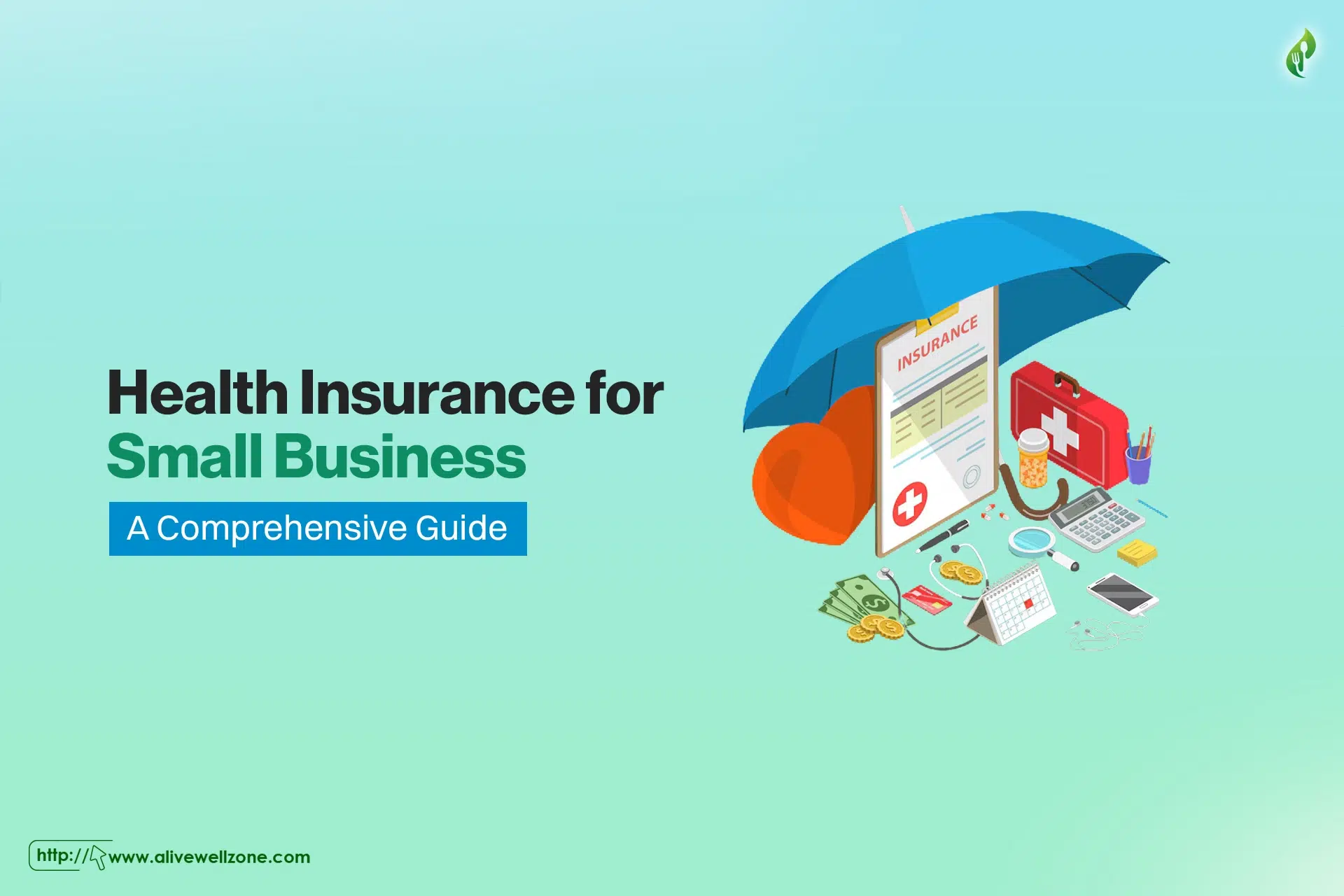
If you’re starting out, navigating the health insurance market can be a challenge. And health insurance for small businesses isn’t just a term; it’s a lifeline that can make or break a business.
And like any tool, insurance can be a safety net, keeping the company’s growth from being derailed by unforeseen medical expenses. But beyond the technicalities and formalities, it’s about peace of mind.
In other words, it means knowing that the company’s most valuable assets – its people are protected. Thus, we’ll dive deep into the specifics, explaining why it’s crucial, how to choose the right option, and why it’s so important.
Importance of Considering Health Insurance Requirements
So, let’s talk about health insurance requirements for your not-so-big ventures. By the way, has it ever felt like a maze to you? Well, we hear you.
Number of Employees
First off, if you’ve got fewer than 50 full-timers on your payroll, we’ve good news. The law, thanks to the Affordable Care Act, doesn’t force you to give them health insurance.
But, here’s the catch – just because it’s not mandatory doesn’t mean it’s not beneficial. In fact, offering health insurance can make your employees feel valued and stick around longer.
Who doesn’t want that?
Meanwhile, if you’re in the “less than 50 employees” club, you’re officially a “small business.” It means you can decide whether to offer group health insurance.
But if you’re sure where to start, you can team up with a PEO service or get a professional insurance broker on board. They can help you pick the perfect plan for your crew.
Consequences for Not Offering Insurance
Well, you’ll face consequences for not offering insurance to your employees. Apart from potential fines, there’s the not-so-small matter of employee morale.
Most importantly, if you offer no benefits, you’ll see your team members’ enthusiasm drop, and many of them heading for the exit.
Get More Info
There’s a treasure trove of info right on official government sites. Check out the U.S. Small Business Administration’s handy dandy guide on health care for businesses like ours: SBA Health Care Guide.
Look, every business is unique, so these broad strokes might not cover every detail for you. If you’re in doubt, it’s always smart to talk with a pro who can give you the lowdown on your specific situation.
Health Insurance Types for Small Businesses
Let’s deep-dive into 4 major health insurance for small business owners. We’ll break down the good and the not-so-good parts of each. Ready? Let’s jump in!

1. PPO Plans
Think of PPO (preferred provider organization) plans as the popular choice in the health insurance world. If you’re under a PPO, you can pick any doctor, whether they’re in your network or not.
But, if you stick to the doctors your insurance loves (in-network), they’ll cover more of the bill.
Advantages
- Go to any doctor, anywhere, anytime, whether they’re in the network or not.
- You don’t need a main doctor (PCP). Go straight to a specialist if you want.
- Covers lots of things – regular check-ups, emergency care, surgeries, and specialist treatments.
- Going on vacation? Your plan goes with you, and you’re still covered.
Drawbacks
- Visiting an in-network doc? Get ready to pay a small fee, like $10 or $15.
- Going outside the network? Your fee gets a bit heftier.
- Had an appointment outside the network? You’ll need to do some paperwork for claims.
2. HMO Plans
HMO plans (health maintenance organizations) are like exclusive clubs. They have their list of cool doctors and you can’t really go outside that list. Plus, you’ll have a main doctor (PCP) who’ll guide most of your care.
Advantages
- Your main doctor is like your health confidante. They know you and what’s best for you.
- Generally cheaper because they’re all about that in-network life.
Drawbacks
- Can only pick from the doctors in the club (network).
- Want to see another doc? Your main doctor needs to give you the green light (except for emergencies).
3. HSA-Qualified Plans
HSA-qualified plans are like PPOs with a special twist. They’re paired with this interesting thing called a Health Savings Account (HSA). It’s a special bank account just for medical stuff.
Advantages
- Tax breaks all around! Put money in, take money out, even earn some extra – all tax-free.
- Didn’t spend all your HSA money this year? No worries, it rolls over to the next.
Drawbacks
- You need a plan with a pretty big deductible to get an HSA. At least $1,350 for just you or $2,700 for a family.
- Big deductibles can be scary and might make you think twice about getting care.
4. Indemnity Plans
With Indemnity plans, you’re in charge. That means you can visit any doctor, anywhere. Your insurance will pay a part, and sometimes you’ll need to pay first and get your money back later.
Advantages
- Get cash quickly if something big (like an accident) happens.
- Some plans have cool extras, like 24/7 virtual doctor visits.
Drawbacks
- Have you health problems already? Might not be fully covered for a year.
- Benefits are linked to certain events, like hospital stays, so it’s not one-size-fits-all coverage.
And there you have it! Four insurance options for your small business. Choose wisely and stay healthy! Aside from that, you can check out secrets to finding health insurance deals.
What to Ask Before You Buy Small Business Health Insurance?
Now, you’re diving into the world of health insurance for your small business. But before you take the plunge, make sure you’re ready with the right questions to avoid any future headaches.
Here’s what you might wanna ask —

1. Adding More Peeps
Can I add more people to the policy later on? And if I do, will they charge me extra?
2. Proof of Insurance
Do you all give out a certificate to prove I have insurance? And do I have to pay extra for that?
3. When does it Take effect?
In what scenarios will my health insurance definitely have my back?
4. Coverage Details
So, how much will this thing cover exactly?
5. Claim Stuff
How easy (or hard) is it to file a claim? And once I do, how long before I know it’s been accepted?
6. Cost Check
And no need to ask them about the cost. A quick online search will show you the pricing for the top small business health insurance options.
How Much Health Insurance Cost?
Thinking about health insurance for your team? Nice move! But let’s be real, the cost is a big deal.
Well, it kinds of varies depending on your specific business. But, if you’re curious, the smart folks at SHRM reckon that healthcare insurance is gonna jump by roughly 5.6% for each employee in 2023.
To give you a ballpark, last year in California, businesses shelled out about $8,083 per person for solo coverage. Additionally, a whopping $22,818 for the whole family.
Money Matters
How much you’ll end up spending is linked to —
- The kind of perks (benefits) you want to offer.
- Who’s getting covered? Just your team or their families too?
- How much of the monthly bill you, as the boss, will handle?
- And if you’re getting some pro help (like a broker or PEO) to find the best fit, keep their fees in mind.
Time Investment
Don’t forget about the time you’ll be investing —
- Hunting down the perfect provider.
- Tuning into what your crew wants.
- Getting the whole plan up and running.
- Schooling your team on what’s what.
- And every year, you’ll revisit the plan, making sure it’s still the best choice.
Hope this gives you a clearer picture! Remember, it’s not just about the bucks but also the time and effort you’ll be investing.
Individual vs. Small Business Health Insurance: How Do They Differ?
It’s hard for most of us to understand what’s the difference between personal and business insurance. We’ll try to steer clear of the confusion below.
1. Small Business Policies
So, if you’re a small business in the US, you get this “group deal” with an insurance company. Usually, the company and the employees split the insurance premium (although sometimes the employees pay the premium).
Can you negotiate with insurers over the benefits? Well, in theory, yes. But in reality, small businesses don’t have a ton of bargaining power.
2. Individual Insurance
On the flip side, individual insurance is like a solo shopping event. You head straight to the insurer and pick out a plan just for you. And yeah, you might get a few coverage options with different price tags.
3. The Day-to-Day Basics
Whether you’re on a group plan or flying solo, a lot of it works the same way. You see a doc who’s on good terms with your insurer, then handles those hassles like copays and deductibles.
At the end of the day, small group and personal policies are kinda like twins.
FAQs
1. Can a one-person business get health insurance for small businesses?
Typically, the group plans to see at least a trio of employees. But there are other doors you can knock on. Consider checking out —
- The marketplace (it’s like Amazon for health insurance).
- Some pro groups or associations have special offers for members.
- And, don’t forget your local Chamber of Commerce. They sometimes have exciting plans for members.
2. Do I need small business insurance though?
If your business involves having people over, then, yes, you definitely should look into liability coverage (just to be safe). But businesses are like snowflakes, each unique, so you might need some other types of coverage too.
That being said, you may find it very helpful to speak with an independent business insurance expert.
Final Words
Throughout this exploration, it’s evident that “Health Insurance for Small Businesses” is more than just a line item on an expense sheet. It’s an investment in the health and well-being of a team that drives the business forward.
When facing unpredictable challenges, having the right insurance ensures stability and fosters trust among employees. As a small business owner, prioritizing health insurance isn’t just sound business; it’s a testament to the importance of each team member.






